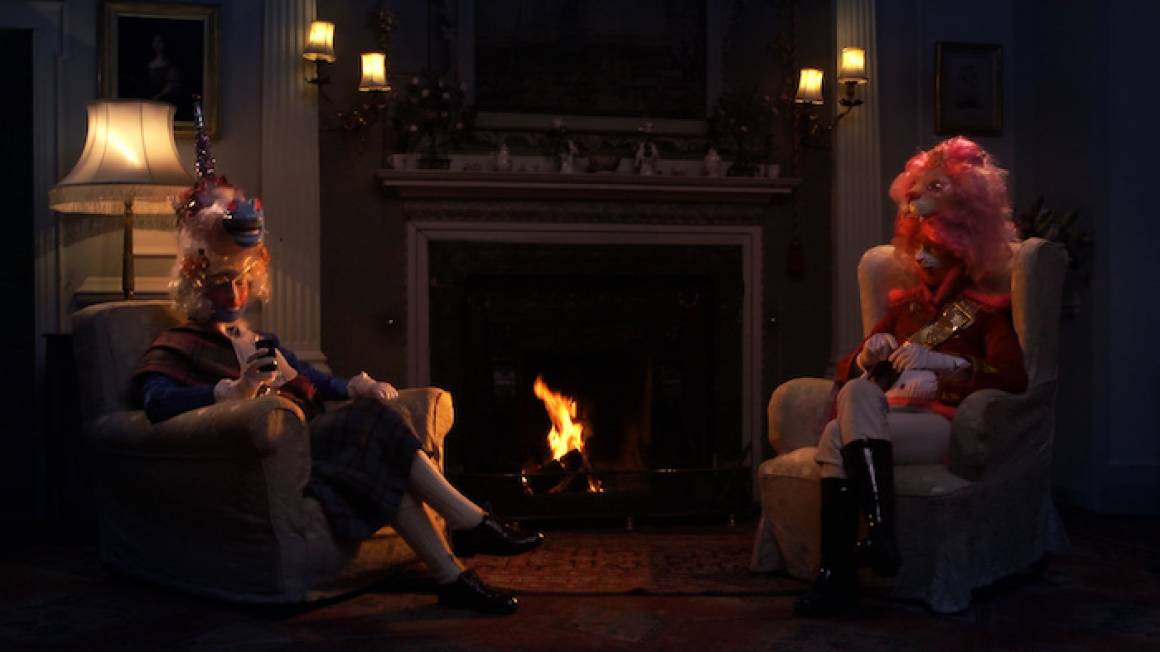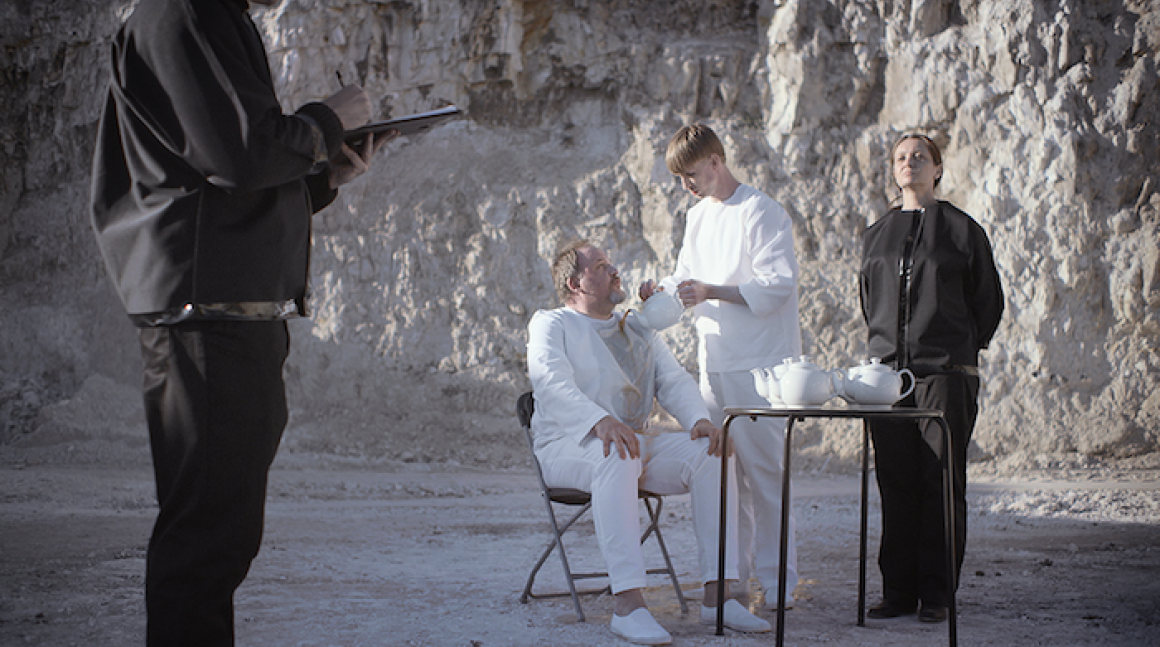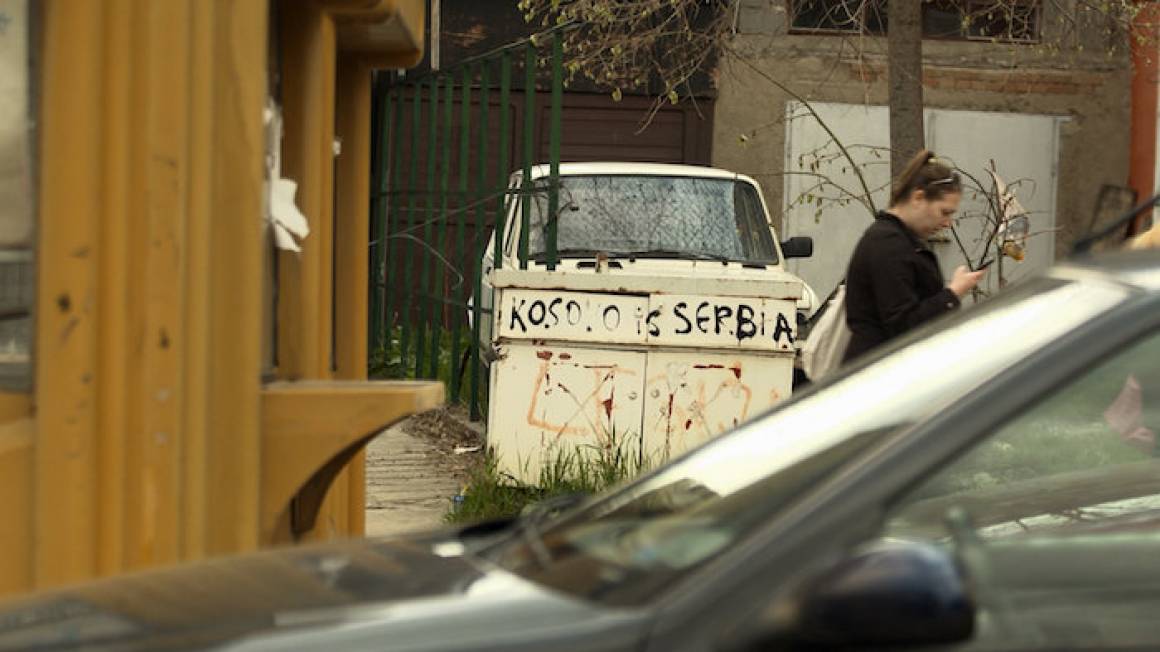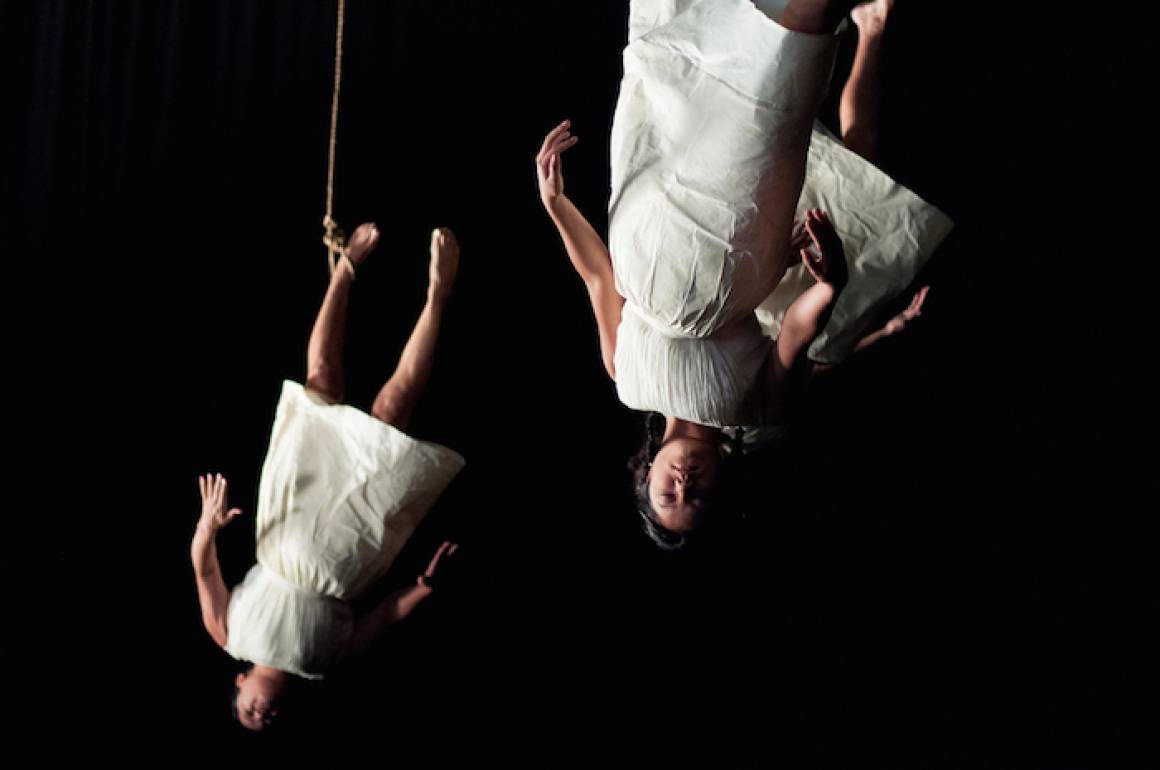As the British government prepares to commence EU exit negotiations, GSFF enlists imagineNATIVE, the world’s largest showcase of Indigenous-made screen content, and Dokufest, the leading film festival in Kosovo, to propose programmes of short films exploring notions of sovereignty, nationhood and borders both physical and cultural. Programmers Matt Lloyd, Veton Nurkollari and Jason Ryle talk us through their selection.
GSFF’s programme Citizens of Nowhere grapples with Scottish and English political identity in the wake of Indyref and Brexit. The films in this programme, although almost all made before September 2014, collectively chart Scotland and England’s divergent paths since that vote.
From the optimism of Matt Hulse’s referendum morning address and the prescient vision of Rachel Maclean’s The Lion and the Unicorn, we turn to the England of William Raban’s Time and the Wave, which captures a country in stasis, despite the illusion of movement on the surface. Meanwhile Peter Greenaway’s prediction of the water running out in The European Showerbath provides an alibi for the impotent fury seen in John Smith’s Who Are We?

The absurd conclusion of a national identity built on fears about immigration is played out in Kristina Cranfeld’s Manufactured Britishness, in which hopeful incomers roleplay tropes of British identity in an arid post-industrial landscape, watched over by jackbooted box-tickers.
Finally we return to the Scottish borders in two works. In documenting the 700 year old ritual of the Common Ridings, Katie Davies’ The Lawes of the Marches portrays a strange hybrid cultural identity, performed on a border that has always been fluid and permeable. And in the month in which Article 50 will be invoked, Richard Ashrowan’s Five Angels attempts an invocation of its own.

Dokufest’s programme Power To The People explores the newfound independence of a tiny country emerging from two decades of warfare and turmoil. On 17 February 2008, the Kosovo Assembly voted to declare independence from Serbia. In less than a year, more than sixty countries around the world had already recognized Kosovo, including twenty-two of the twenty-seven members of the European Union, and today that number stands at 114.
The normalization of relations with Serbia, which still refuses to recognize Kosovo’s independence, remains one of the main challenges for the future of this troubled part of the Balkans. A serious attempt – known as the Brussels dialogue – began in 2011 under the European Union’s facilitation, with the final aim of creating better living conditions for citizens of both Kosovo and Serbia and contributing to the reconciliation process in the long term.
It is no surprise that filmmakers both from Kosovo and abroad have become interested in exploring this new situation. It seems to bode well for Kosovo in Baris Karamuco’s sweet Whose Flag Is It? Kids love the country’s new flag, whilst adults throw around reasons for and against it, and everybody seems to be genuinely involved in a debate on national identity and statehood building.

Kosovo’s future, somehow naively believed by many to be in the hands of its people, takes a strange and more bureaucratic turn in Karen Stokkendal’s The Agreement. In this darkly humorous political documentary a former rock musician turned Serbian envoy Borko Stefanović and proudly Harvard-educated Edita Tahiri, his Kosovo counterpart, battle one another in the unglamorous meeting rooms of Brussels. They are attempting to draft a border rule agreement. We witness the calm of experienced EU negotiator Robert Cooper in trying to keep these two strange representatives at the table. In his hand he holds a carrot in the form of an invitation to join the EU, a reward seemingly too precious for either party to let slip.
But what happens to the ordinary people when personal animosities and political games back home swiftly destroy what was agreed at the negotiating table? While Serbia’s path to the EU has been confirmed, Kosovo remains the only European country with no EU visa liberalization, making it effectively one big ghetto inside Europe. No one likes to live in the ghetto, of course, and people will do whatever it takes to get out. Enter Note on Multitude, a frightening and disturbing look at mass exodus from a crowded bus terminal on a cold winter night in Prishtina, capital of Kosovo, made by Bosnian artist and filmmaker Ibro Hasanović.

imagineNATIVE reclaims the final words of Theresa May’s pre-referendum pro-European speech – Stand Tall And Lead – to consider a notion of sovereignty which has little to do with nationhood, but is rather about reasserting one’s voice, culture and rights amongst a multiplicity of identities. In many ways, pre-colonial North America resembled the European Union: numerous nations with trading partnerships, close alliances,and occasional conflicts, whose membership was based on citizenship and not solely on ethnicity. Given that impacts of colonisation on Indigenous people in Canada are still apparent today, the commemoration of its sesquicentennial – 150 years of a nation state that supplanted pre-existing Indigenous nations – can be rather complex.
Indigenous people in Canada consist largely of three groups – the First Nations, Inuit and Métis – although within each is a diversity of languages and cultures. What binds them is a shared history of colonisation and a shared future predicated on a present where Indigenous rights, aspirations and sovereignty have taken centre stage in Canada’s political, social, cultural and artistic realms.
The diverse films in imagineNATIVE’s programme – all created by First Nations, Inuit and Métis filmmakers from Canada – reflect on Indigenous sovereignty with a focus on the body, land, and spirit. La Tonsure contemplates the impact of deliberate colonisation of Indigenous lives and bodies with the forced cutting of children’s hair in residential schools as a metaphor for the attack on Indigenous sovereignty. Connections to land – and a difference in the understanding of one’s relationship and responsibilities to it – are explored in the documentary Blocus 138 and in Bloodland, which takes a theatrical stance against the Alberta Tar Sands.
SNARE and this river explore the tragedy of Canada’s ‘stolen sisters’, the over 1,000 missing and presumed murdered Indigenous women, that has only just been given a national inquiry after more than a decade of calls. These films remind us that for true sovereignty to exist, there must be equality and respect for all genders.

With Repercussions, the tone is set for change and the rising of new Indigenous voices, while Sirmilik examines changes of a different kind in Nunavut that suggest a new kind of relationship to the land.
While ‘Canada’ and numerous other place names in the country are derived from Indigenous languages, their meanings are largely unknown. Niagara and The Renaming of PKOLS take a deeper look into the power of a name and how this relates to sovereignty.
A sense of place and a belonging is central in Mia’. It tells the story of a woman transformed into a salmon and is a powerful statement of one’s connection to one’s territory. This is echoed in the final work, Wapawekka, which is emblematic of the rise in Indigenous youth’s connection to their cultures and all that entails. Indigenous youth are returning to their cultures and languages in ways not seen for decades and many are taking to screen-based storytelling to express themselves and their realities.
Combining documentary, animation and artists’ moving image in three very different but complementary programmes filled with humour, pathos and rage, Reflections on Sovereignty attempts to pay homage to the unstoppable desire of ordinary people to retain control over their lives and forge a better world.